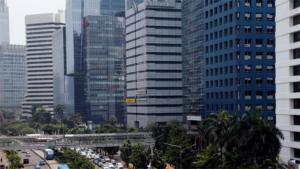
A Boost from Political and Religious Celebrations
Indonesia’s economy has experienced a notable uptick in growth during the first quarter of 2024, with a reported expansion of 5.11 percent. This growth is attributed primarily to increased government and household spending linked to the country’s presidential election in February and preparations for the holy month of Ramadan and Eid al-Fitr in April.
Contributions to Economic Growth
The report from Statistics Indonesia highlighted that household consumption continues to be a major driver of economic growth. This surge in consumer spending reflects the country’s robust domestic demand, which benefits from cyclical events such as elections and significant religious holidays. These events typically stimulate expenditures across various sectors including retail, hospitality, and services.
Economic Forecasts and Challenges
Despite the positive growth, there are concerns about the accuracy and reliability of the official data. Economists like Gareth Leather from Capital Economics express skepticism about the figures released by Jakarta, suggesting that growth might be slower than reported. The Indonesia Activity Tracker, an alternative measure, indicates a more modest recovery and anticipates a growth rate closer to 4.5 percent for the year, impacted by high-interest rates and a weakening demand for commodities.
Monetary Policy and Its Implications
Indonesia’s central bank implemented a surprise interest rate hike last month, raising the rate to 6.25 percent—the highest in seven years. This decision aims to stabilize the rupiah against the dollar and curb inflationary pressures. However, higher interest rates may also temper economic growth by making borrowing more expensive and reducing consumer spending and investment.
Long-Term Outlook
While the first quarter of 2024 has seen promising growth figures, the Indonesian economy faces challenges that could dampen its momentum. The central bank’s tight monetary policy, along with global economic uncertainties and fluctuating commodity prices, could pose significant headwinds. Additionally, the post-election period often sees a normalization of government spending, which might result in slower growth in subsequent quarters.
Conclusion
Indonesia’s first-quarter economic performance illustrates the significant impact of election and holiday spending on growth. However, moving forward, the country must navigate the complexities of monetary tightening and external economic factors. Careful policy management will be crucial to maintaining economic stability and ensuring sustainable growth in Southeast Asia’s largest economy.






















Comments are closed for this article!